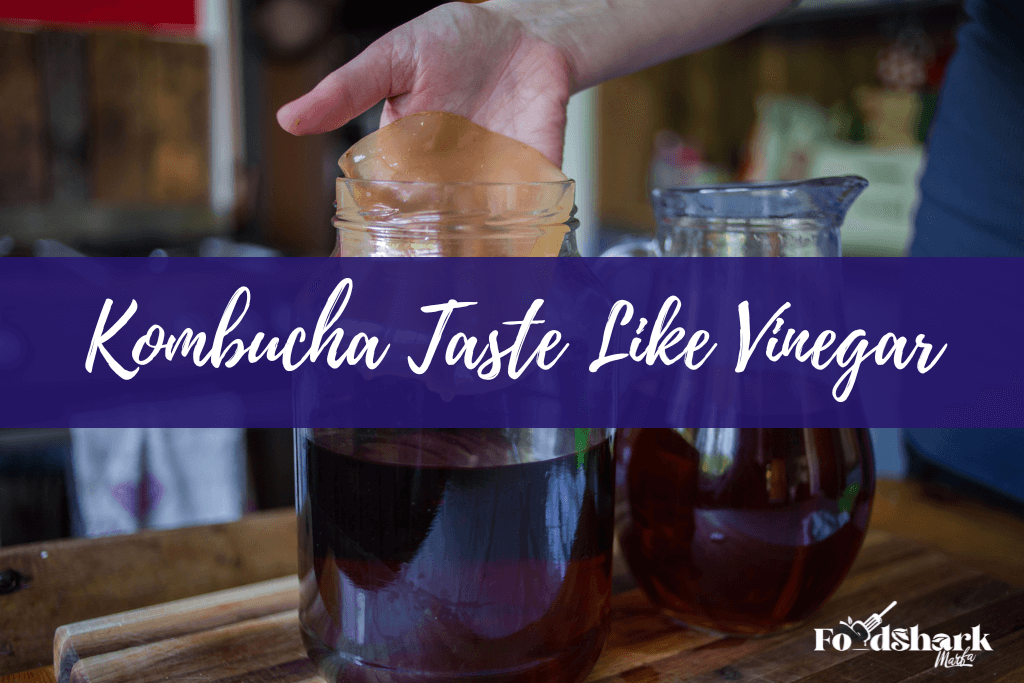Kombucha, sometimes known as tea mushroom, is a fermented and sweetened black tea drink that is frequently drunk in the hopes of reaping health advantages. Originally from China, this drink has made its turn around the world including Russia, Europe, and the United States, so much so that the market for the kombucha business is expected to be valued at over 2.64 billion US dollars as of 2021.
However, some customers complain about the bitterness or "vinegary" taste of kombucha drinks. Is this claim true; and, if that is the case, why does it happen, and what can you do to fix it and make the drink more drinkable? Let us find out.
What is the process of producing kombucha?
The most critical component of the kombucha-making process to understand initially is that it is a fermented beverage. That is, kombucha is manufactured by fermenting brewed and sweetened tea with SCOBY (Symbiotic Culture of Bacteria and Yeast). Here double fermentation takes place, which means that the sugar is fermented into alcohol by yeast and the alcohol then ferments again into acetic acid by bacteria.

The first step in creating kombucha is steeping tea with 5%-15% sugar for a while. After that, the tea leaves are removed and the tea is allowed to cool to room temperature.
After the tea has cooled, a measured portion of fresh-fermented kombucha carrying the microbial colony from a previous set of kombucha is added to it. The mixture is then covered with a cloth made of breathable material and left to ferment for 7-10 days. That concludes the kombucha-making process.

Furthermore, if you want to add more flavors to your kombucha, you can do a second fermentation by adding fruit, herbs, or spices to the bottled kombucha and allowing it to rest at room temperature for a day or two before refrigerating.
You can start your at-home kombucha-making session with these kombucha-brewing mason jars.
Does kombucha taste like vinegar?

The fermentation process used to make kombucha is strikingly comparable to that used to make vinegar. It is possible for kombucha to have a taste that is tangy or somewhat sour as a result of the fermentation process; nevertheless, it should not taste like vinegar.
In general, kombucha that has been properly brewed should have a flavor that is pleasing, somewhat acidic, effervescent, and have a hint of sweetness from the sugar that is incorporated during the brewing process.
Why does kombucha taste like vinegar?

There are many reasons why your kombucha can taste like vinegar. Overfermentation, using too much SCOBY, the temperature of the place, etc are the main reasons.
Firstly, if kombucha has been over-fermented or the fermentation process has gone too far, it can taste like vinegar. The SCOBY (Symbiotic Culture of Bacteria and Yeast) consumes the sugar in the tea and creates organic acids, including acetic acid, which is the same acid that gives vinegar its signature sour flavor. The longer kombucha ferments, the more acidic it becomes, and if the fermentation process is prolonged, the acetic acid level can rise to the point where it tastes like vinegar.

Again, the more SCOBY you use, the more your kombucha will ferment. If the SCOBY to ratio is not balanced, your kombucha might turn sour much faster than you anticipate.
Get this SCOBY on amazon to make organic kombucha!
Once more, one of the factors that can influence the fermentation process is the temperature of the surrounding environment. If you make kombucha in an environment that is very hot and humid, the fermentation process will move along much more quickly. As a result, within seven to ten days it will have fermented for an excessive amount of time, turning sour and vinegary. Therefore, you have to ferment it for a lesser amount of time.
Finally, the strength of the tea and the type of sugar used can all have an impact on the fermentation process and the flavor of the kombucha. It is critical to frequently monitor the fermentation process and taste the kombucha to ensure that it does not get overly acidic or vinegary.
What to do when kombucha turns too sour to drink?
There are certain things you can do in this situation. Firstly, you can dilute the sour kombucha with water and sugar and leave it to ferment again with regular check-ins. Secondly, you can neutralize the too-acidic kombucha by adding a little bit of calcium carbonate or potassium bicarbonate to your kombucha.
Thirdly, you might be better off using the whole batch as just plain old vinegar because your sour kombucha has not actually gone off, it has just become stronger in taste for you to consume.
On another note, in order to prevent your batch of kombucha from becoming sour again, you can make sure to use the right amount of SCOBY, have the fermentation process done in a cooler environment, and regularly taste-test them to prevent over-fermentation.
Frequently Asked Questions
What are the health benefits of kombucha?
WebMD suggests that consuming kombucha on a daily basis can facilitate better digestion and provide you with more energy. As a result of the fermentation process, kombucha contains a high concentration of beneficial probiotics, which makes it an effective treatment for irritable bowel syndrome and diarrhea. Additionally, the probiotics will assist you in developing an immune system that is more powerful.
Again, if the kombucha is prepared with green tea, it will be high in antioxidants, which will increase the amount of collagen that your body produces, minimize the amount of cell damage that your body already has, and help you burn fat more quickly.
Conclusion
In conclusion, kombucha is a healthy fermented drink that is gaining exponential popularity as the days go by. However, this tasty and fizzy drink can turn sour and vinegary if the fermentation process does not go as planned. In order to save your kombucha from becoming literal vinegar, you can follow the instruction mentioned above. Happy kombucha drinking!


